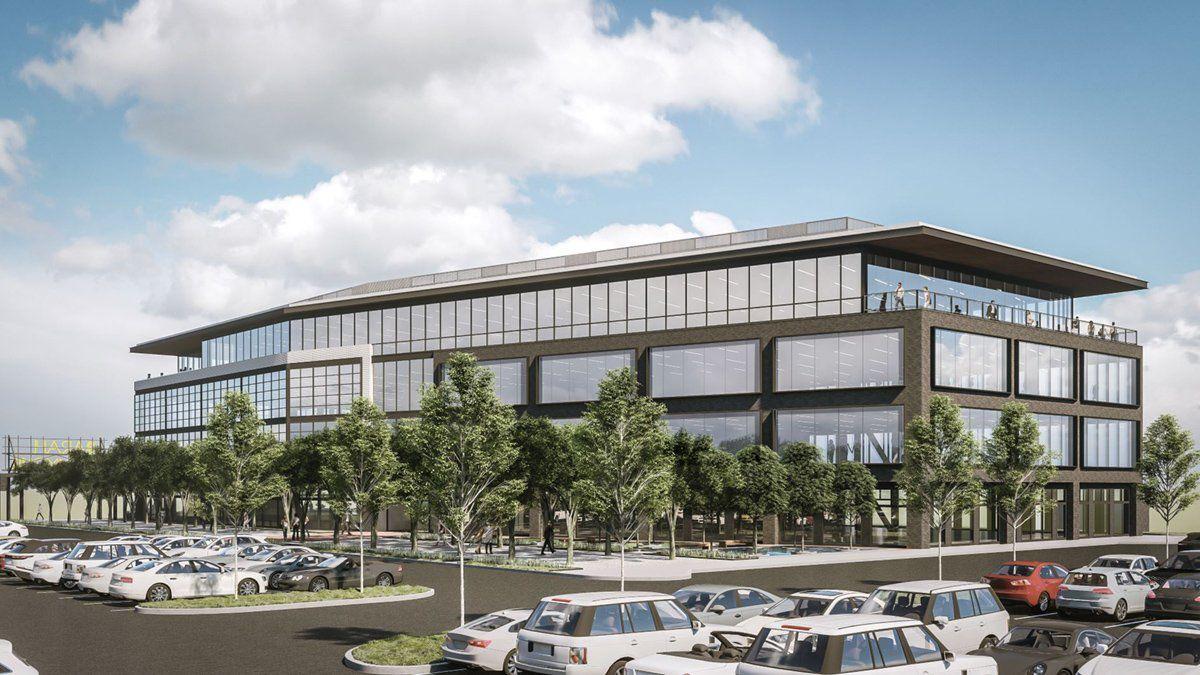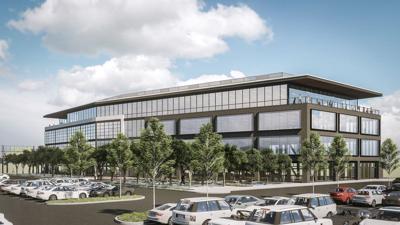ST. LOUIS ŌĆö New city leaders have again delayed a decision on tax breaks for a development, this time for a project in the booming Cortex technology hub.
On Wednesday, the ūŅą┬ąė░╔įŁ┤┤ Tax Increment Financing Commission was set to discuss $14 million in tax increment financing for ūŅą┬ąė░╔įŁ┤┤ developer KDGŌĆÖs $99 million office and apartment proposal. The project would add two office buildings, 160 apartments and a 610-spot parking garage, additions long sought in Cortex, the central corridor district home to thousands of jobs.
The commission instead decided to move the decision to July after Alderman Tina Pihl, whose ward includes Cortex, asked to postpone the meeting in order to have more time to review the project. ItŌĆÖs the second time in two weeks Pihl has asked the commission to delay a meeting. Pihl and Mayor Tishaura O. Jones, both elected to their first terms last month, delayed awarding a TIF last week to a developer of another central corridor project in PihlŌĆÖs ward in hopes of persuading that developer to help fund development in north ūŅą┬ąė░╔įŁ┤┤.
People are also reading…
Jones campaigned on a promise that she would take a hard look at tax breaks in the cityŌĆÖs central corridor, which has seen more development compared to neighborhoods on the north and south sides. Earlier this month, she vetoed bills that would authorize property tax abatement, another development incentive, for an apartment redevelopment in Grand Center and a commercial project in Downtown West. She encouraged the developers to come back to the negotiating table.
Last week, Jones and Pihl, whose 17th Ward has seen much redevelopment, delayed a public hearing on the next phase of the high-profile City Foundry office and entertainment project, which was seeking a $17 million TIF. JonesŌĆÖ office and Pihl have asked developer Steve Smith to contribute funding to help kick-start development in north ūŅą┬ąė░╔įŁ┤┤.
On Wednesday, JonesŌĆÖ spokesman, Nick Dunne, confirmed the mayorŌĆÖs office had reentered negotiations with Cortex regarding its TIF, saying that itŌĆÖs a ŌĆ£continuation of the mayorŌĆÖs promise to be an active partner in negotiations around development incentives.ŌĆØ
The city in 2013 granted Cortex up to $167.7 million in TIF assistance to redevelop the former industrial area. About $135 million of that has been allocated so far, according to a city report.
Dunne declined to say if Jones would ask Cortex to contribute to north side development. The administration, he said, is just starting talks with Cortex and thereŌĆÖs not a one-size-fits-all approach to how Jones is handling incentive requests.
But developers worry that JonesŌĆÖ new policy could discourage investment in the city.
ŌĆ£If the city takes the position that incentives granted by the Board of Aldermen or otherwise are still in flux, I think it will make things go a lot slower and cost everybody more money,ŌĆØ said David Messner, co-founder of New Legacy Development Partners, which is investing more than $60 million for apartments, restaurants and businesses in LacledeŌĆÖs Landing.
ŌĆ£Developers have options in Kansas City, Louisville or Nashville. The city doesnŌĆÖt have to give the farm away to make ūŅą┬ąė░╔įŁ┤┤ a compelling choice. But itŌĆÖs how do you make ūŅą┬ąė░╔įŁ┤┤ a compelling place to invest where itŌĆÖs already expensive to do so,ŌĆØ Messner said.
Michael Hamburg, who has invested millions of dollars to redevelop the former Steelcote Paint Co. and Columbia Oil buildings into apartments in Midtown, agreed.
ŌĆ£Our city is in the middle of a dramatic step forward and hopefully there is adequate support and resolution for that to continue,ŌĆØ Hamburg said.
Cortex is one of the cityŌĆÖs few economic engines, where organizations like Washington University, BJC Healthcare, Boeing and Microsoft have a big presence. Washington University is currently building a $600 million neuroscience research building at Duncan and Newstead avenues in the district. Prior to the COVID-19 pandemic, Cortex had a 1% vacancy rate among office tenants, ranking it as one of the most in-demand areas in the metro region.
The KDG project would create more office space and add long-sought apartments that could help Cortex become a 24/7 neighborhood, something officials see as vital to ensuring the districtŌĆÖs long-term success.
KDG directed questions to Cortex. Sam Fiorello, CEO of Cortex, did not directly address questions about north city funding but said in a statement that Cortex wants the next phase of development ŌĆ£to be a positive investment for the whole community.ŌĆØ


















